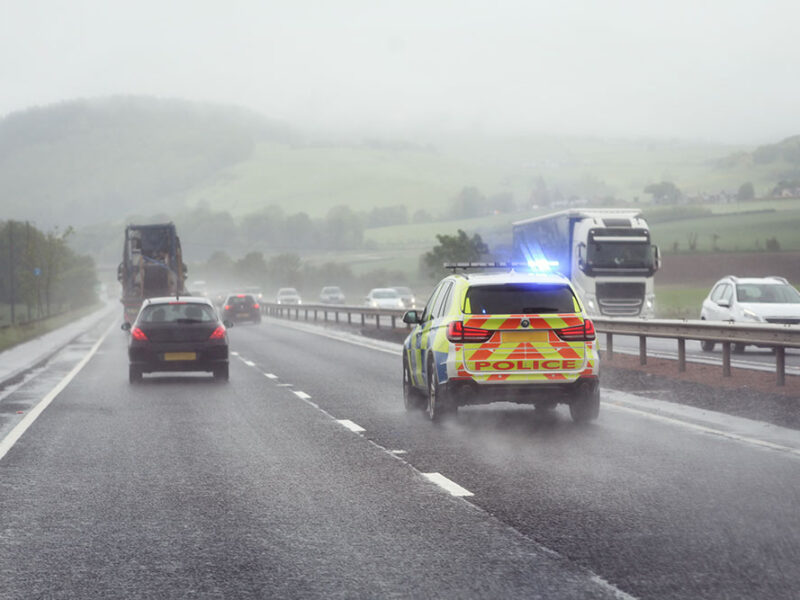Following a legal challenge from the Bus and Coach Association, the Department for Transport opened a consultation on 8th February 2018 on the scope and use of Section 19 and Section 22 permits.
Sections 19 & 22 of the Transport Act 1985 permit organisations which operate on a not-for-profit basis to obtain permits exempting them from the requirement to use their vehicles under an Operator's Licence (and so avoid the obligations that are made conditional upon the grant of such licences).
PSV O Licence Holders Concerns
There has long been concern among some PSV operators that the legislation permitting Community Transport Operators to run their vehicles under permits has led to abuse; most obviously in cases where the holders of permits compete for - and crucially win- work that would otherwise be awarded to O Licence holders, thereby leading to complaints of an uneven playing field that favours the interest of permit holders. O Licence holders complain that if they must hold an O Licence in order to service such work it cannot be right that non O Licence holders should be permitted to win and run such work while operating under a less onerous regulatory regime.
The consultation aims to amend the Transport Act 1985 so that permits are only awarded to organisations which satisfy the "exempt bodies" criteria of EU Regulation 1071/2009, so that permits become invalid as soon as the organisations to which they have been granted no longer satisfy the relevant criteria.
Greater Clarification with New Guidance
The Department for Transport's proposal aims to provide guidance on those organisations that are eligible to run vehicles under Section 19 and Section 22 permits, while also working with the DVSA to ensure that a proportionate approach is taken to the enforcement of the amended legislation. The proposed new guidance aims to clarify exactly what the requirements for a "non-commercial exemption" are, details of which can be seen on the Government website via the link here.
The Department for Transport say that they hope that through these amendments, and their efficient enforcement, they will be able to ensure that the permit system is not misused, and indeed that it continues to be used as it should be; i.e. as a means of offering a beneficial service to (often disadvantaged) members of the local community but without adversely affecting the livelihoods of O Licence holders. The effect of this amended regime should be to help address the long-held concerns in the transport industry that permit holders are obtaining an advantage that is both unlawful and innately unfair...
The Department for Transport has also reiterated its support for Community Transport Operators and their philanthropic endeavours, and has announced that, through the Bus Service Operators Grant, they will be offering around £3.5 million in financial support in this financial year.
Next Steps?
The overall impact for the transport industry ought to be positive, with fairer competition (such as it may be) between public and private sector operators, and clearer guidance to follow for Community Transport Operators. The changes (if and when they come into force) mean that organisations likely to be affected (i.e. Section 19 and 22 permit holders) will need to review the new proposed legislation and its likely impact in good time so as to make any changes that are needed before the new regime bites (this is especially so where new O Licences must be obtained and the O Licensing compliance regime put in place so as to continue operations hitherto carried on under permits).
If you need help or advise with anything covered in this article, then please call us now on 01279 818280 and one of our specialist team will be happy to help.

More News and Insight

DVLA Confirms New Rules for Professional Drivers Living with Diabetes
From Friday 7th November 2025 the rules were changed to allow diabetic drivers of PSV’s and HGV’s to monitor their glucose levels using Continuous Glucose Monitoring Systems….

Carrying Your Own: Horses to Widgets? Do you Need an O Licence?
The DVSA recently released a press release about the rules for transporting horses in horse boxes and trailers following an update on the guidance about using a tachograph in the vehicle being used to transport the animals…

The Senior Traffic Commissioner’s Statutory Guidance
The value of The Statutory Guidance Documents and the importance to operators, nominated transport managers and other professionals involved in the operation and driving of large commercial vehicles cannot be overstated…

Walkaround Checks – Where Road Safety Starts
Every day, often before the sun is above the horizon, hundreds of thousands of commercial vehicles are started up by their drivers and then they head out on to the UK’s road network to transport goods or passengers from one point to another, often with demanding time constraints thrown into the mix…

Traffic Commissioner’s Annual Report 2024/25: “Don’t Look Back in Anger”
Time has flown by and once again we find that the schools are back after the long summer break and the Office of the Traffic Commissioner has issued its annual report to the Secretary of State, providing a review of the year…

An Apple a Day to Keep the DVLA Away – A review of the DVLA’s Rules on Health Checks for Professional Drivers
There has been some discussion in the industry trade press recently that has highlighted proposed changes to how the disease of diabetes is monitored in professional drivers by the DVLA. One article in RouteOne Magazine stated that…

Light Goods – Heavyweight Industry: The DVSA’s New LGV Strategy
While relatively small in overall physical size light goods vehicles (LGVs) are now a large part of the UK road transport industry. There are currently estimated to be over 5.1 million light goods vehicles on UK roads today…

Employment Law Update – A tale like Scylla & Charybdis
Operators currently face their own real time nightmare in the form of a modern day version of the Greek mythological tale of Scylla and Charybdis (where sailors faced a narrow strait through which they had to pass which had a monster on one side and a whirlpool on the other!)…

Labour Government – Employment Rights Bill – What Will It Mean for Transport Businesses?
In October 2024 the Deputy Prime Minister, Angela Rayner set out her intention to reform the employment rights held by employees in the UK. In a press release issued at the time she is quoted a saying…

Revisiting the DVSA’s Guide to Maintaining Roadworthiness
In April 2025 the Driver & Vehicle Standards Agency (DVSA) issued the latest edition of its Guide to Maintaining Roadworthiness.

The Wheels on the Bus go Round & Round….but how do they Stop?
At the tail end of 2024 a Public Inquiry was held in front of Traffic Commissioner Kevin Rooney where the subject of brake maintenance practices was called into question…

Maintenance Provision Rating Scheme for Commercial Vehicle Workshops is Launched
One of the key tenants of running a commercial vehicle operation, whether ‘HGV’ or ‘PSV’ is that the maintenance of the vehicles is paramount. For some operators this will mean having their own maintenance facilities and teams to look after their fleet of vehicles in house, but the majority of operators in the UK are reliant on 3rd Party maintenance providers…
